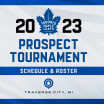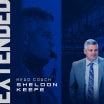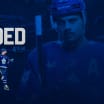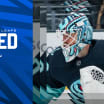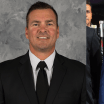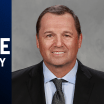Transcript: Kyle Dubas Media Call - March 31, 2020
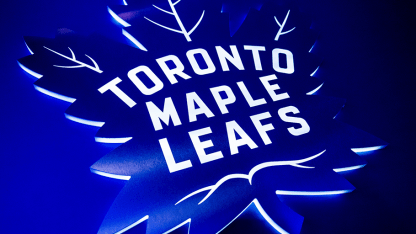
Q (Chris Johnston, Sportsnet): Hi, Kyle, hope you and your family are keeping well. I'm just wondering during this pause what you've been prioritizing from a work standpoint and how the quarantine period has affected your ability to do that.
KYLE DUBAS: Thanks, Chris. During the pause, I think the first priority has been corresponding with MLSE and our other teams as well as the NHL and just monitoring the situation at a high level, meaning the advice that we get from the League and from the experts that work with our company and with the League and how we're best to proceed, and what we're to advise our staff and players. That's been the primary focus during this time. And beyond that, it's really just been focus on scouting and player development and getting both of those departments advanced as far as we can during this period, which is obviously unprecedented. We're trying to use that time we do have to make sure that we're doing all we can to set those departments up as best as possible for when we do resume.
Q (Steve Simmons, Toronto Sun): Good morning, Kyle, and thanks for doing this. Normally at the end of the season, you can judge how you're going to proceed and game plan how you're going to proceed based on what happened in the season. When you have the possibility of a season not ending and a playoff not happening and you have to make judgments unlike any other time in history, how do you go about doing that?
KYLE DUBAS: I think there's no real easy way to answer that, Steve. I think this is an athletics situation. There's much more important things happening in the world right now and a lot of people doing a lot more -- a lot, lot more -- important work in the community and in healthcare in particular, but as it pertains to the team, I think we try to map out as many of the situations that could come as possible without trying to get too far ahead and lose sight of what may be right in front of us. I think it's just trying to, as I mentioned in the answer to Chris, get all of our departments that we definitely control right now operating at the best level and hopefully that will allow us to inform our decisions in whatever method they have to be made. Once we're able to move forward, not as a sport, but as a society and in the world, once the proper actions are taken to get the virus under control at first and then eradicated in the end. Your question probably summed it up best. It's so hard to know which way we're going and how we're going to get there, but, first and foremost, is the health of all the citizens and all the places that we operate and attribute to the great work that's been done by medical people along the way.
Q (Josh Clipperton, The Canadian Press): Hey, Kyle, thanks for doing this. Echoing everyone else's sentiments, hope everyone's healthy. A lot of people have had a chance to reflect during this time, I'm wondering what perspective this has given you in the quiet moments... Personally and everything in the world.
KYLE DUBAS: I don't think I'm qualified or smart enough to really give any insights into the impact of this on the world. I think there are people on the medical side, in particular, that have done an excellent job and the media has done an excellent job of putting out there the things that are important for our society to abide by and the various risks that we face. This is obviously a situation that a lot of people, very smart people, had warned about for a long time. I think when those warnings come it's easy to kind of say, 'Well, you know, we'll be able to control it when it happens.' And now we're in this situation and you kind of wish -- you look back and you see all the people that reference these retrospective pieces or warnings from very, very intelligent people in the medical community that warned about this type of thing happening. I think, for me personally, I think it just gives you a good perspective in terms of maybe instead of being caught up in the in the day-to-day of hockey or the small things that are going on in your life, it's better to spend more time listening to people who have objective expertise in these areas, whether it's medical or other issues that are coming for us, and if we can help to spread that, then try to spread that message as we move forward.
Q (Josh Clipperton, The Canadian Press): March 12 was the day of the shutdown, the NBA had suspended play the previous night. I think it was surreal for everyone. What was it like for you not knowing if there was going to be a morning state or a meeting and just the all the moving pieces of that day in particular?
KYLE DUBAS: Yeah, I think the night before we were at home and actually watching the Marlies. The Marlies were playing at Bridgeport that night. As that game was beginning to wrap up, the news started to come from Oklahoma City that one of the players was sick and it just sort of started this chain reaction unlike anything that I've ever experienced professionally. Later that evening we were sort of trying to gather information the next day at the rink, trying to keep the players and staff somewhat focused on the game that night against Nashville, but also having the other half of you worried about the health and safety of everybody -- not just the players and the staff, but the people who work at the arena and the community at-large. And then the morning skate was canceled, and they said they were going to have some sort of an indication later that day, and it was just at that point fielding a lot of questions from players and staff and waiting for the League to announce that they were they were pausing the season at that time. So I've never really experienced anything like that before. Your question is the first time I've really reflected back on the actual day, but I think it was absolutely the right decision and continues to be the right decision for the safety of everybody.
Q (Marty Klinkenberg, The Globe and Mail): On the night of the 11th when you heard that the players were sick and the NBA was going to was going to suspend its games, did you at that point fairly well have an inkling that the NHL would probably be doing the same thing?
KYLE DUBAS: It was really tough. There was just so much happening all at once and I know it's only sports and sports have rightfully taken a backseat, but it seemed like the decision by the NBA really was a momentous move in this entire thing. That's from my perspective as a biased sports person that the decision kind of rapidly, right after the diagnosis of Rudy Gobert, sort of set in motion a real chain reaction, not only in sports, but in society. It was all very surreal because I don't think any of us have ever experienced anything like that. Maybe people who've been around for -- and I'm speaking only of the stopping of play, not the societal and the issues of medical and healthcare all across the world -- but I don't know that many people have experienced anything like that where a season, just right in the middle of it, you have to go back to the mid-90s for some seasons that were suspended for labour relations, but I don't know that any of us have any experience with the health of the entire world creating that sort of a situation where things are paused. So it was all very surreal and you're trying to gather information as quickly as possible, the players are reaching out rapidly trying to figure out what's going on. It was unlike anything I have any experience dealing with.
Q (Dave Feschuk, Toronto Star): The NBA has been floating through the media that trial balloon I think about the idea if they do come back, it would be in a sequestered situation where the teams would gather in one or two or more cities without fans and just essentially play in a TV studio. Could you see a situation like that? I know it's far off and it's all theoretical, but could you see that working for the NHL?
KYLE DUBAS: I have no idea, Dave. I haven't really thought about it and it hasn't been anything that's been discussed with the teams. So I think in our conversations with the League I think their primary focus has been on the health and safety of the players and the staff and then, of course, the fans who would be interacting as such. I haven't heard anything like that, I haven't really put any thought into it. So I think it'd be unfair for me to comment about whether it would work or not. I know that the NHL -- it's been a great enlightenment for me and maybe others to kind of see in these times on the daily the way that they operate. The way that Commissioner Bettman and Bill Daly and the rest of the staff there have handled this has been really enlightening for me and for us to know that their primary concern is the health and safety of everybody. I don't know about resumption in situations like that. I've read the NBA thing and the Premier League situation as well, which sounds kind of similar, but I don't know with regards to hockey.
Q (Dave Feschuk, Toronto Star): So just to be clear, Kyle, resumption scenarios have not been at all discussed?
KYLE DUBAS: No, not with us. The primary focus in all of the discussions and all the situations have been about the health and safety of everybody and I think they've been clear in their own messaging that the goal is to at some point to conclude the season, but that's well in the backseat behind the medical situation at hand.
Q (Justin Cuthbert, Yahoo Sports): One thing the Commissioner said not long after the League was put on hiatus, that it would not compromise the integrity of the Stanley Cup just to crown a champion at some point maybe this summer. Do you subscribe to that same thinking and, in your opinion, what would be an acceptable abbreviated format?
KYLE DUBAS: I would agree with Commissioner Bettman's viewpoint on the integrity of the Stanley Cup tournament and all that goes into it. And I think everyone on the call has always done their part to discuss and talk about how difficult it is to go through the four rounds of playoffs and then, in the end, conquer the Stanley Cup. So I think that's always something that's been revered in hockey and I think the same goes for all sports that use a playoff tournament style. There's always something to be said for the regular season, but then on the capacity to go through four rounds in the spring or into the summer. I think that keeping the integrity of the tournament style that's there now is important and I would agree with the Commissioner. I have no idea what an abbreviated scenario would look like or how it would unfold, but I think these are unprecedented times with regards to everything that we're doing and I'm sure that the League is looking at everything possible to move it ahead once were medically able to do so. For me to guess on what that would look like, I think, would be a little bit reckless on my end because I don't think it's certainly not at the front of our mind right now and not probably with the League either. I think the focus is on getting the proper read on the situation that can best arm everybody to make decisions as we move ahead and then be prepared as best as possible when we are able to resume, whenever that may be.
Q (Terry Koshan, Toronto Sun): Thanks for doing this, Kyle. I'm just curious, what are you doing to get your mind off of everything? I mean away from hockey. I know we saw the video a few weeks ago of your son, but Tavares was just saying yesterday the importance of spending time with Jace, all that sort of thing. How are you dealing with that part of it? And then what are you doing to get your mind kind of into reality here, I suppose.
KYLE DUBAS: Yeah, it occurred to me on the weekend that this very, very unfortunate and dire situation on the medical side of things and with the pandemic, one of the positives -- and I think we're a family that's fortunate enough to do so -- is that we've basically, the three of us, have been together for three weeks in a row. It will be three weeks on Thursday. I don't know that it's ever possible that once we're able to find a solution and vaccine and be able to get this under control that it will ever be possible for me, and probably for a lot of you and others, to be able to have this much time in a row with our family. So our little guy is two-and-a-half years old, and that is a great age for his own developing his personality. It's been a lot of fun on that front. So I think just trying to take advantage of all the time I have with him and Shannon has been one of the silver linings -- a big time silver lining -- to this entire situation. Other than that and the family time, there's just a lot of work to continue to do, but also trying to catch up on some reading and TV shows that you don't get a chance to watch and read as much as you'd like to when the season is in full swing and try to catch up on that and keep the mind active and rolling along.
Q (Terry Koshan, Toronto Sun): Can you give us an idea of what you're reading and/or watching right now?
KYLE DUBAS: We're watching Ozark, the new season of Ozark. It's been outstanding. And then it's the final season of Homeland. It's been unbelievable, in my opinion, but I'm not a television expert by any means. And then Curb Your Enthusiasm and The Office always make their way in and I'm actually reading a fiction book. I don't read much fiction, but I figured to get the mind working a little bit I'd do that. It's a book called Ohio by Stephen Markley. Very good. So, there you go, Terry.
Q (Paul Hendrick, Leafs Nation Network): Thank you, Kyle, and great to hear your voice. This is just a simple hockey question about one of the organization's prospects in Nick Robertson. If you can comment on the season he's had, and does he find himself in a similar position to where Mitch [Marner] might have been in 2016? Perhaps too good for one league, not eligible to play for the Marlies and maybe not quite ready to make the Maple Leafs and how, in a perfect world, he might approach training camp in the event that we do get one in the fall of 2020.
KYLE DUBAS: Well, thanks, Henny. I think Nick has had a great season. Right from the draft on, he had an excellent World Juniors summer selection camp in Plymouth and that, I think, set him up for the season. He was really, really strong for us in the Rookie Tournament in Traverse City, carried that through training camp. I think looking back and reflecting on it, I think we probably should have given him more of a look in training camp and probably rewarded him with an exhibition game or two to see how he did there. But he went back to Peterborough, he had a great attitude and he was an excellent player for them right away. I think the part of his game -- I know the goalscoring was prolific -- but the part of his game that I think that we really came to admire during the season was his play on the defensive side and, especially on the penalty kill, his ability to win the puck back and then tear down the ice and produce chances and scoring for the Petes. Obviously, he played a huge role on the World Junior team as well. It's disappointing, of course, that he won't be able to see how far he could have run it up in regard to chasing 60 goals, but he's one of the more focused and hardworking prospects that I've seen in my time in hockey. I think he knows the areas that he needs to continue to work on. He's got a great read on that. I think come training camp we'll give him every opportunity to potentially make the team and put the ball in his court and see what he can do in in the fall, we hope.
Q (Luke Fox, Sportsnet): Hi Kyle, thanks for doing this. I'm just interested, there have been some reports that you guys are poking around on Alexander Barabanov and I'm wondering how this pause is affected your ability to find guys and scout guys and sign guys out of Europe. I know that has kind of been a trend at this time of year for you guys.
KYLE DUBAS: Yeah, thanks, Luke. We're pretty fortunate on our staff, our Senior Director of Player Evaluation, Jim Paliafito, does a great job for us on the cases in Europe and with college players in terms of he's got a great read early on, on who the players are that we're probably going to look at, he does a great job of communicating back to the organization and to our player personnel department to have a look at the players and whether it's live or break down their video, and then he's able to kind of begin having conversations with them and their agents during the year to kind of get a handle on it. So I don't think the pause has really affected our ability to evaluate and recruit, it's had to change some of the recruiting side of it and move it to a virtual format or FaceTime or Zoom meeting or what have you. But I think, because of the job that Jim does, we've already got relationships there. So it's not trying to beat somebody over the phone or beat somebody over a virtual setting. You've already got a bit of a relationship there. So it hasn't really impacted it. I think there are players that we're interested in and we're competing with many other teams to try to gain a commitment and our hope is that the ability of the players that have come over from Europe, since Jim has been with us, to quickly transition to pro hockey in North America will be a big help for us. That's all a credit to Jim and the work that he does and then the ability of our coaching and development staff to work with them in the summer and get them ready for the fall.
Q (Luke Fox, Sportsnet): Could you describe Barabanov's game to North American fans who might not be familiar with him?
KYLE DUBAS: Well, Alex is a player that we've scouted and watched, he along with many others over there we're certainly interested in. He's a winger, he's strong, he's not tall, but he's a very strong winger, tremendous playmaking ability, great skill level in tight, but I think one of the other things that we like most about him is his ability to make plays under pressure and his ability to win pucks and protect pucks when people come after him and uses his strength to be able to do that. So he's a playmaking winger that also has the ability to finish at the net. We'll continue to pursue him as best we can.
Q (Joshua Kloke, The Athletic): Hey, Kyle, thanks for doing this. I'm just curious in your conversations with players, with people on the team, have you gotten a read on how people are feeling throughout this pandemic and what some of the concerns from players are just in general?
KYLE DUBAS: Yeah, you know Josh, it's not anything I have any experience dealing with. And so I think the way we try to approach it is just to be trying to communicate as often as we can with our players and staff and try to provide as much support as we can. These are very different times and there's different players that are in different situations. You've got European players who are here by themselves and in a condo by themselves, so you worry about them a little bit and you worry about whether everyone has the resources that they need, and then you worry about everybody abiding by the very, very important rules of physical distancing and staying inside and staying at home and making sure they're abiding by that. So there's concern from our end that we're doing our part to educate our staff and players on what we need to be doing in our community in order to make sure that we're setting as best an example as we possibly can because of our visibility. And I think we've been pretty proud of the way that our players have handled that but, in other regards, our medical staff, led by Dr. Noah Forman have been great at answering any questions the players have and about the virus itself and its impact on people and the community and why it's important for us to do our part. We're also fortunate to have Hayley Wickenheiser on our staff who is in medical school and has a lot of great insights into it. The players who've been on the ice with her and know Hayley have a great relationship. So she's a great resource as well. And, like I said at the beginning, I'm not qualified to give any sort of insights into these things, but Hayley and Dr. Forman do have those qualifications, as well as some of the infectious disease experts that the League and MLSE have provided for us. So it's just trying to keep everybody as educated as possible and support them, the people who need the support the most, who maybe don't have a family. The people who do have families, it's a different impact on them as well. So we're trying to support as best we can and communicate as much as we can. I don't know how good of a job we're doing or not, but we're just trying to give everybody the information they need to best help set up themselves, their family and, for our organization, to set as good an example as we can in the community and beyond.






